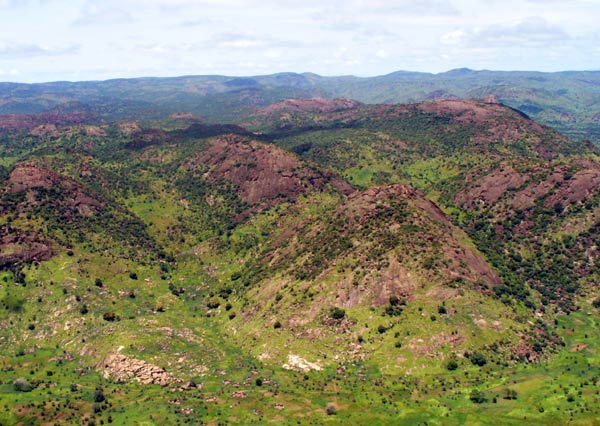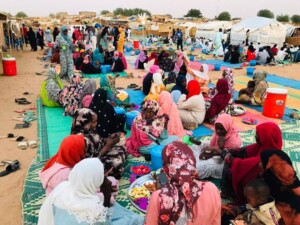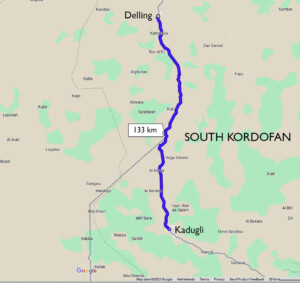South Kordofan: 3.5m Nuba face ‘extreme hunger’

Nuba Mountains (Wikipedia)
More than 3.5 million people in areas controlled by the Sudan People’s Liberation Movement-North (SPLM-N El Hilu) in the Nuba Mountains and Blue Nile region are facing extremely dire humanitarian conditions. Representatives of the World Food Programme (WFP) in Sudan said the organisation is working to deliver 3,500 tonnes of food assistance to Wadi Halfa, Northern State.
Sources affiliated with the SPLM-N El Hilu told Radio Dabanga yesterday that the ongoing war between the Sudan Armed Forces (SAF) and the paramilitary Rapid Support Forces (RSF) has “displaced almost one million people to the Nuba Mountains in South Kordofan, and about 400,000 to the Blue Nile region”, all within areas controlled by the rebel movement.
“The population in SPLM-N-controlled areas surged to more than 3.5 million people following the influx of people fleeing Khartoum.”
According to the sources, this year’s agricultural season “yielded a success rate of only 50 per cent”. They attributed the failure of the agricultural season to insufficient and erratic rainfall, as well as the destructive impact of locust infestations on crops.
There is an urgent need for assistance, particularly in the form of food supplies, medicine, clean drinking water, shelter materials, clothing, and household utensils, they added.
“SPLM-N has appealed to United Nations to provide aid. However, we are awaiting permission from the Sudanese Commission for Humanitarian Affairs (HAC) for humanitarian agencies to intervene.”
Delling
The Greater Delling area in the northwest of South Kordofan is reportedly facing a severe shortage of sorghum, signaling an imminent food crisis. The price of a sack of sorghum has doubled since the start of January, soaring to SDG45,000.
Residents of Dalami, further to the south, told Radio Dabanga that there has been no sorghum available for purchase for four days, in Habila and Dalami. They attributed this scarcity to the failed agricultural season.
Clashes in Delling renewed in mid-January after an RSF convoy entered the town and clashed with SAF units in the area.
WFP
A delegation from the WFP, led by Karim Abdelmoneim, met with the executive director of Wadi Halfa in Northern State, discuss the possibility of regulating arrivals at shelter centres and providing urgent humanitarian aid, in collaboration with the Sudanese Red Crescent Society.
Abdelmoneim, the WFP head of vulnerability analysis and mapping in Sudan, said he urged the director of Wadi Halfa to allocate a temporary warehouse to store 3,500 tonnes of food destined for the border town.
He added that assistance was especially needed in Wadi Halfa, Merowe, and Dongola, the state capital, “as they have welcomed the largest number of displaced people since the beginning of the war”.
Abdelmoneim outlined that WFP’s action plan for humanitarian assistance: “The initial phase focuses on regulating the movement of displaced people to shelter centres and delivering aid, with host communities addressed in the subsequent stage. Additionally, surveys and studies on the needs of children and women will be conducted.”











 and then
and then